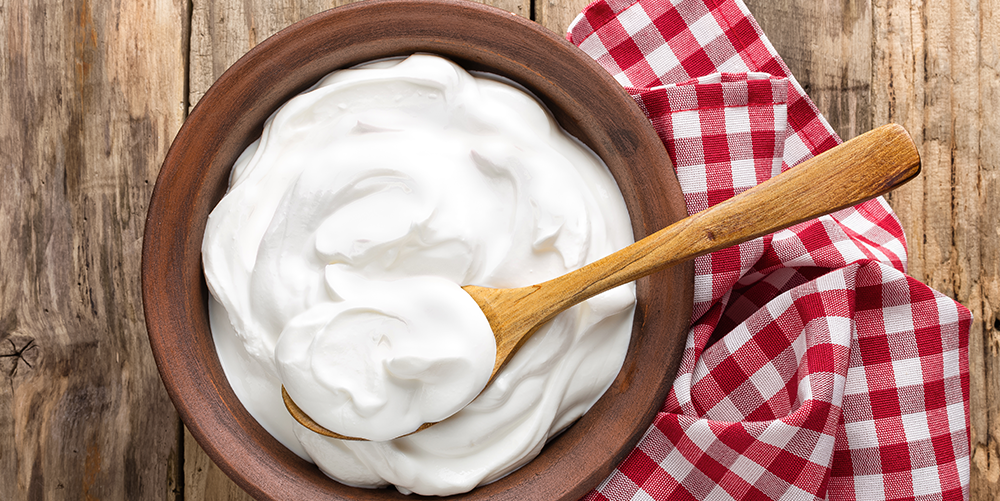Is Greek Yogurt Actually Good for You?

"Hearst Magazines and Yahoo may earn commission or revenue on some items through these links."
Whether you mix it with smoothies, add it to a dip, use it for overnight oats, or even just enjoy it by itself, Greek yogurt is a super versatile ingredient that you can incorporate into your daily diet in many different yummy ways. Here’s everything we know about whether or not Greek yogurt is good for you.
Greek yogurt differs from other yogurts because it goes through a straining process to remove the whey, a liquid that contains lactose. Because lactose is a natural sugar, strained Greek yogurt is lower in sugar than regular yogurt, and removing the whey produces a thicker, creamier yogurt with a tart taste.
So, many have asked the question: is Greek yogurt actually “good” for you? We asked R.D.N.s for their take on this popular snack and breakfast food.
Is Greek yogurt good for you?
Yogurt, in general, contains probiotics and calcium which are great for gut health, bone health, and heart health, says Melissa Prest, D.C.N., R.D.N., national media spokesperson for the Academy of Nutrition and Dietetics and member of the Prevention Medical Review Board. “Lower sugar options are better options for most people,” she adds, “and Greek yogurt is thicker than regular yogurt and tends to be higher in protein and usually lower in sugar.”
Greek yogurt nutrition facts
While the following nutrients and vitamins may be present in most Greek yogurts you’ll find in the grocery store, keep in mind that low or no-fat options may not share the same health benefits as traditional Greek yogurt.
Here’s what nutritional experts know about Greek yogurt and all the good stuff inside:
High in protein
Compared to regular yogurt, Greek yogurt has fewer carbohydrates and almost double the protein, says Prest. By removing the excess liquid whey and lactose (or natural sugars), a higher protein product is created.
The average greek yogurt contains around 15-20 grams of protein for a 6-ounce serving, or 30% of your recommended daily value, says Keri Gans, M.S., R.D.N., C.D.N., registered dietitian nutritionist in New York City. “Protein helps carry oxygen throughout our body; it builds, repairs and maintains muscle mass—and may aid in satiety at mealtime.”
Good source of calcium
A 6-ounce serving of greek yogurt contains around 20% of the recommended dietary allowance for calcium, says Gans. “Calcium is important in the diet as it helps to build and maintain strong bones and teeth, as well as aid in blood clotting, muscle contractions, and nerve functions.”
Probiotics
Thanks to its probiotics content, Greek yogurt is great for gut health. If your greek yogurt contains “live and active cultures,” then it contains probiotics, explains Gans. “Probiotics may help balance a person’s gut microbiome and promote digestive health.” One study found that yogurt consumption was associated with reduced visceral fat mass and positive changes in gut microbiome.
In addition to probiotics, Greek yogurt also contains magnesium, vitamin B12, and iodine, adds Prest.
How to use Greek yogurt in meals
Greek yogurt can be enjoyed solely on its own as a snack, or breakfast, with fruit and/or nuts, or added to a smoothie, says Gans. This apple crisp smoothie is particularly yummy!
There are also some easy ways to substitute Greek yogurt for similar ingredients. For example. you can use it instead of mayonnaise in a tuna, chicken, or egg salad, Gans suggests. Or, instead of sour cream on a baked potato, you can use greek yogurt, she adds. “Greek yogurt can also be added to a salad dressing to make it creamier.”
You Might Also Like

